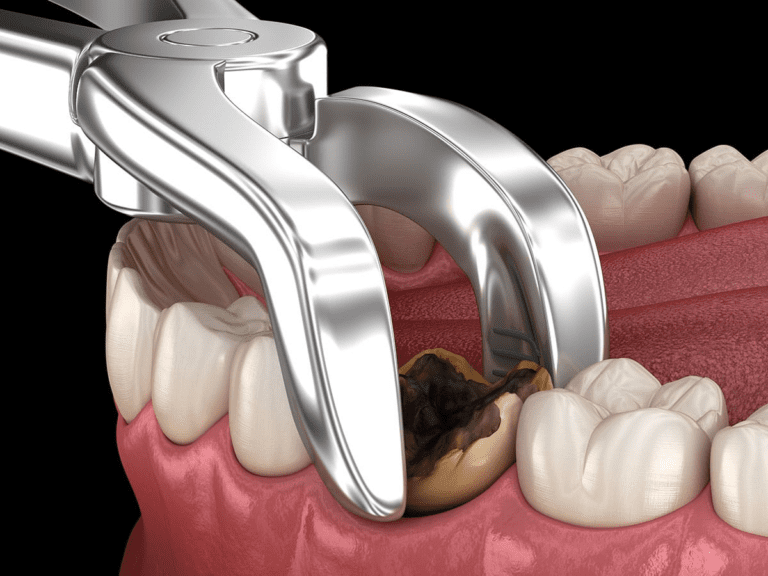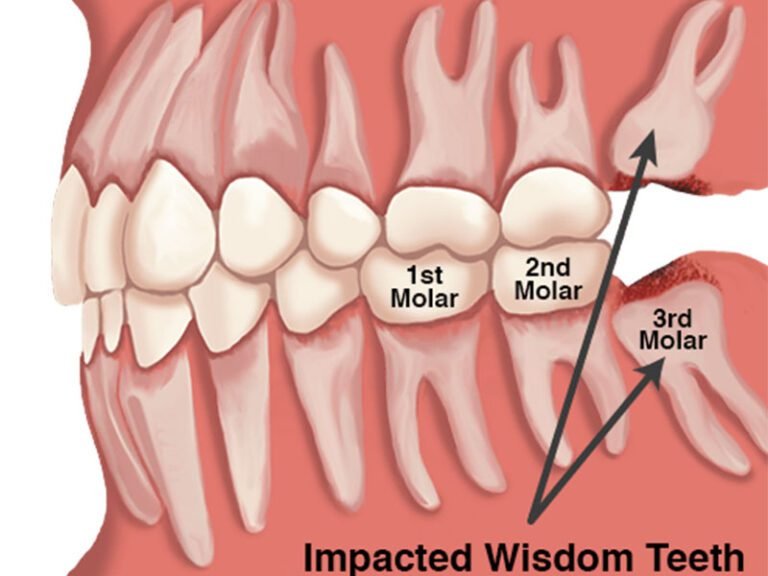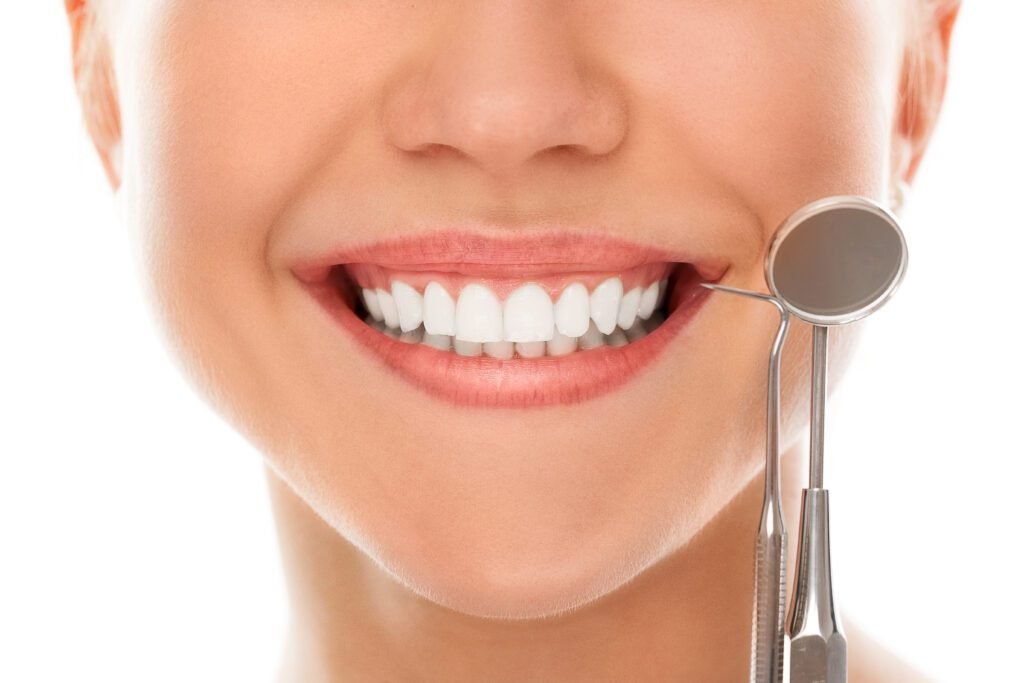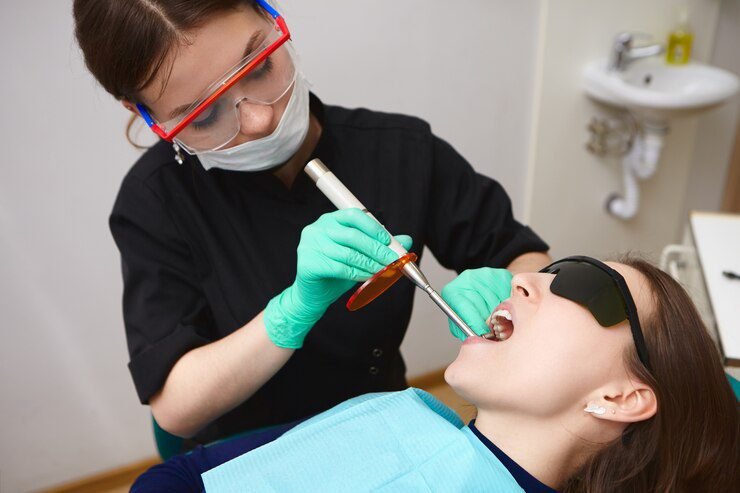Table of Contents
The Process of Wisdom Teeth Development
Wisdom teeth, also known as third molars, are the last set of teeth to develop in the human mouth. They typically emerge between the ages of 17 and 25, a time when a person is entering adulthood. The process of wisdom teeth development begins with the formation of tooth buds deep within the jawbone. These buds slowly grow and eventually push through the gums to take their place in the dental arch.

During the development process, there can be variations in the number and position of wisdom teeth. Some individuals may have all four wisdom teeth, while others may have fewer or none at all. Additionally, the angle at which the wisdom teeth erupt can vary, sometimes leading to impaction or crowding of surrounding teeth. It is important to note that the development of wisdom teeth is a natural process and does not necessarily indicate a dental problem.
Common Myths about Wisdom Teeth
Myth 1: Wisdom Teeth Are Necessary for Proper Dental Function
One common myth surrounding wisdom teeth is that they are essential for proper dental function. However, this is not the case for everyone. In fact, many individuals have their wisdom teeth removed without any negative impact on their oral health or ability to chew and speak. The truth is, our mouths have evolved over time, and the modern human jaw has become smaller, leaving inadequate space for the eruption of wisdom teeth. Therefore, the removal of these extra molars is often recommended to prevent potential problems such as crowding, decay, and gum disease.
Myth 2: Wisdom Teeth Always Cause Pain and Discomfort
Another misconception about wisdom teeth is that they always cause pain and discomfort. While it is true that some individuals experience symptoms like swelling, jaw stiffness, and pain due to wisdom teeth eruption, not everyone goes through this ordeal. In fact, some people may have fully erupted wisdom teeth that don’t cause any discomfort at all. It’s crucial to consult with a dentist to determine the position, alignment, and condition of your wisdom teeth. Regular check-ups and X-rays can help identify any potential issues early on and recommend appropriate treatment if necessary.
In the following section, we will debunk more common myths surrounding wisdom teeth and shed light on the facts to provide a clearer understanding of this dental phenomenon.
Myth 1: Wisdom Teeth Are Necessary for Proper Dental Function
Wisdom teeth, also known as third molars, typically begin to develop in the late teenage years or early twenties. Many people believe that wisdom teeth are necessary for proper dental function. However, this is a myth that has been debunked by dental professionals.
The reality is that wisdom teeth are actually vestigial organs, remnants from our ancestors who had larger jaws and needed these extra molars to help with chewing tough and coarse foods. Over time, as the human diet changed and evolved, our jaws became smaller, causing a lack of space for these additional teeth. As a result, wisdom teeth often become impacted or grow in at odd angles, leading to various dental issues. In fact, studies have shown that over 60% of impacted wisdom teeth can cause damage to adjacent teeth if left untreated.
| Argument | Counterargument |
|---|---|
| Wisdom teeth aid in chewing tough foods. | Modern diets are softer and easier to chew, making wisdom teeth unnecessary. |
| Wisdom teeth help maintain proper alignment of adjacent teeth. | Wisdom teeth can cause crowding and misalignment due to limited space in the jaw. |
| Wisdom teeth prevent bone loss in the jaw. | Wisdom teeth can lead to periodontal disease and bone loss due to difficulty in cleaning. |
| Wisdom teeth contribute to overall dental health. | Removal of problematic wisdom teeth can improve dental health and prevent complications. |
Myth 2: Wisdom Teeth Always Cause Pain and Discomfort
Wisdom teeth, also known as third molars, are the last set of teeth to develop in the human mouth. There is a common misconception that these teeth always cause pain and discomfort. While it is true that some people experience symptoms such as swelling, soreness, and difficulty in opening their mouths due to the eruption of wisdom teeth, it is not always the case. In fact, many people have fully functional and healthy wisdom teeth without experiencing any discomfort.
The idea that wisdom teeth always cause pain and discomfort stems from the fact that these teeth often erupt in a crowded mouth, which can lead to complications. When there is insufficient space for wisdom teeth to properly emerge, they may become impacted and cause problems such as infection, damage to adjacent teeth, and the formation of cysts. However, this doesn’t happen in every case. Some individuals have adequate space in their mouths for these teeth to grow in properly, resulting in minimal or no pain or discomfort.
It is important to understand that the experience of wisdom teeth eruption varies from person to person, and not everyone will encounter significant pain or discomfort. However, it is crucial to monitor the development of wisdom teeth and consult with a dental professional for a comprehensive evaluation.
Myth 3: Wisdom Teeth Must Be Removed for Orthodontic Reasons
Wisdom teeth, also known as third molars, have long been associated with orthodontic issues. It is commonly believed that these teeth must be removed to ensure proper alignment of the other teeth. However, this belief is a myth that needs to be debunked.
The alignment of teeth is primarily determined by genetics and the growth of the jawbone. While it is true that wisdom teeth can sometimes exert pressure on the surrounding teeth, leading to crowding or misalignment, this is not always the case. In fact, studies have shown that the majority of people who retain their wisdom teeth do not experience any significant changes in their dental alignment.
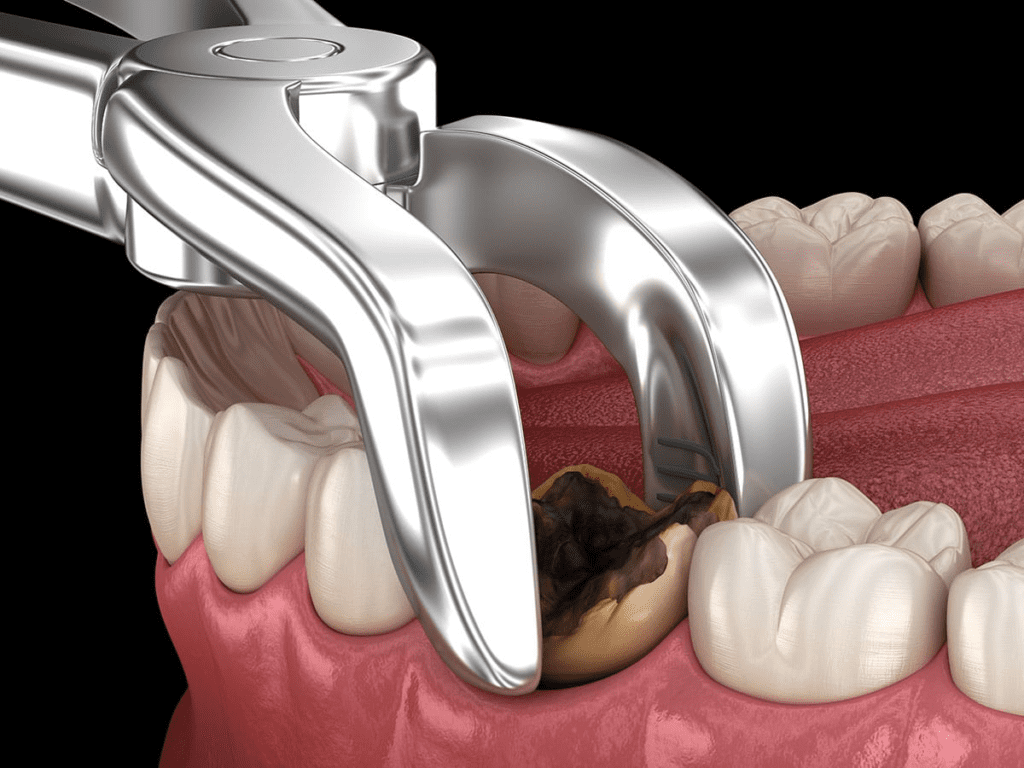
Orthodontic treatment should be based on individual needs and the guidance of a qualified professional. In some cases, removing wisdom teeth may be recommended as a preventive measure to avoid potential problems in the future. However, it should not be assumed that every person with wisdom teeth needs orthodontic intervention. A comprehensive evaluation by a dentist or orthodontist is necessary to assess the specific situation and make an informed decision.
Myth 4: Wisdom Teeth Can Cause Misalignment of Existing Teeth
Wisdom teeth, also known as third molars, often emerge during the late teens or early twenties. There is a common misconception that the eruption of wisdom teeth can lead to misalignment of existing teeth. However, this belief is not entirely accurate.
The misalignment of teeth, known as malocclusion, can occur due to a variety of factors such as genetics, jaw size, and crowded teeth. While it is true that the eruption of wisdom teeth can cause some discomfort and minor shifting, it is important to note that this is not always the case. In fact, studies have shown that only a small percentage of individuals experience significant teeth misalignment as a result of their wisdom teeth erupting.
Myth 5: Wisdom Teeth Always Need to Be Extracted
The belief that wisdom teeth always need to be extracted is a common misconception that many people hold. It is true that in some cases, wisdom teeth can cause problems such as decay, infection, or crowding of the other teeth. However, this does not mean that extraction is always necessary.
In fact, studies have shown that in certain individuals, wisdom teeth can erupt normally and function properly without causing any issues. According to a study published in the Journal of Oral and Maxillofacial Surgery, researchers found that approximately 45% of young adults who had at least one impacted wisdom tooth did not experience any symptoms or complications. This suggests that not everyone needs to have their wisdom teeth removed.

However, it is important to note that each case is unique and should be evaluated by a dental professional. The decision to extract wisdom teeth should be based on factors such as the position and alignment of the teeth, the presence of symptoms or complications, and the individual’s overall oral health. Consulting with a dentist or oral surgeon is crucial in determining the best course of action for wisdom teeth management.
Myth 6: Wisdom Teeth Can Cause Sinus Problems
Wisdom teeth, also known as third molars, are the last set of teeth to develop in the human mouth. They typically begin erupting between the ages of 17 and 25. Myth has it that wisdom teeth can cause sinus problems, but is there any truth to this claim?
The connection between wisdom teeth and sinus problems is actually quite rare. While it is possible for an impacted or infected wisdom tooth to exert pressure on the surrounding structures, including the sinuses, this is not a common occurrence. In fact, research suggests that less than 1% of sinus infections are related to wisdom teeth. Most sinus problems result from other factors such as allergies, colds, or bacterial infections. So, while it is important to address any dental issues promptly, it is unlikely that wisdom teeth are the root cause of sinus problems for the majority of individuals.
Myth 7: Wisdom Teeth Extraction Is Always a Complicated Procedure
Wisdom teeth extraction is a common dental procedure that many people undergo at some point in their lives. While some cases may indeed be complicated, it is not always the case. The complexity of the procedure depends on various factors such as the position and alignment of the wisdom teeth, the patient’s oral health, and the expertise of the dentist performing the extraction.
In many instances, wisdom teeth extraction is a straightforward procedure that can be completed with minimal complications. With advancements in dentistry and the use of modern techniques, dentists are able to efficiently remove wisdom teeth with precision and minimal discomfort for the patient. Additionally, the availability of sedation options allows patients to undergo the extraction comfortably, further reducing any potential complexities.
| Myth | Reality |
|---|---|
| Wisdom teeth extraction is always complicated | Wisdom teeth extraction can vary in complexity depending on factors such as the position, orientation, and development of the teeth, as well as the individual’s jaw structure. While some extractions may be straightforward, others may require more extensive surgical procedures. It’s essential to consult with a qualified dentist or oral surgeon to determine the best course of action for each individual case. |
It is important to note that each case is unique, and some individuals may require more intricate procedures if their wisdom teeth are impacted or if there are complications such as infection or cysts. However, with proper planning and the expertise of a skilled dentist, the majority of wisdom teeth extractions can be performed with relative ease and without significant complications.
In conclusion, while wisdom teeth extraction can be a complicated procedure in certain cases, it is not always the norm. With advancements in dentistry and the expertise of dental professionals, many extractions can be performed efficiently and with minimal complications. It is crucial for individuals to consult with their dentist to determine the best course of action for their specific situation.
Myth 8: Wisdom Teeth Removal Is the Best Solution for All Cases
Wisdom teeth removal is a common dental procedure that many people undergo. While it is true that in some cases, wisdom teeth can cause problems such as impaction, infection, or overcrowding, it is not always the best solution for every individual. Each person’s dental health is unique, and decisions regarding wisdom teeth removal should be made on a case-by-case basis.
It is important to consult with a dental professional who can thoroughly evaluate the condition of your wisdom teeth and assess their impact on your overall oral health. In some cases, the removal of wisdom teeth may be necessary to prevent future complications. However, there are instances where wisdom teeth can grow in properly and function without causing any issues. In such cases, removing them may not be the best course of action and could be unnecessary. Therefore, it is crucial to have a comprehensive evaluation performed by an experienced dentist to determine the most appropriate treatment plan for your specific dental needs.
Myth 9: Wisdom Teeth Removal Is Always Covered by Dental Insurance
Wisdom teeth removal is a common dental procedure that many people undergo at some point in their lives. However, one common myth surrounding this procedure is that it is always covered by dental insurance. While dental insurance plans may provide coverage for wisdom teeth removal in certain situations, it is not universally guaranteed.
The coverage for wisdom teeth removal can vary depending on the specific dental insurance plan and the individual’s dental health. Some insurance plans may cover the full cost of the procedure, while others may only cover a percentage of the expenses. Additionally, there may be certain limitations and criteria that need to be met in order for the insurance to cover the procedure.
It is important for individuals to carefully review their dental insurance policy to understand what is covered and what is not. Prior authorization may be required, and certain criteria such as the positioning of the wisdom teeth and the presence of related symptoms or complications may need to be met in order to qualify for coverage. Consulting with a dental insurance representative can provide clarity on the extent of coverage for wisdom teeth removal.

In some cases, if a dental insurance plan does not fully cover the cost of wisdom teeth removal, it may be necessary for the individual to bear some or all of the expenses. Therefore, it is important to consider the potential financial implications of the procedure and plan accordingly.
In conclusion, the idea that wisdom teeth removal is always covered by dental insurance is a myth. While coverage may be available in certain scenarios, it is not guaranteed, and the extent of coverage can vary depending on the individual’s insurance plan. It is crucial for individuals to carefully review their dental insurance policy and consult with their insurance provider to understand the specific coverage and potential out-of-pocket expenses associated with wisdom teeth removal.
Myth 10: Wisdom Teeth Extraction Always Results in Facial Swelling
Wisdom teeth extraction is a common dental procedure that is often associated with the misconception that it always results in facial swelling. However, this is not entirely accurate. While facial swelling can occur after wisdom teeth extraction, it is not a guaranteed outcome for every patient. The occurrence and severity of facial swelling vary from person to person and are influenced by various factors such as the individual’s overall health, the complexity of the extraction, and the aftercare provided.
It is important to understand that facial swelling after wisdom teeth extraction is a normal part of the healing process for many patients. The extraction of impacted or partially erupted wisdom teeth can cause inflammation in the surrounding tissues, leading to swelling. However, with proper care, such as application of ice packs, taking prescribed medications, and following post-operative instructions provided by the dentist, the swelling can be minimized.
In conclusion, while facial swelling can be a possible side effect of wisdom teeth extraction, it is not a guaranteed outcome for everyone. Each patient’s experience with facial swelling may differ, and it is crucial to consult with a dental professional who can provide personalized guidance and advice throughout the extraction process. By debunking myths and providing accurate information, individuals can make informed decisions about their oral health.
Myth 11: Wisdom Teeth Removal Always Requires General Anesthesia
Wisdom teeth removal is a common dental procedure that many people undergo at some point in their lives. However, there is a widespread misconception that this procedure always requires general anesthesia. This is not entirely true. While general anesthesia may be used in some cases, it is not always necessary for wisdom teeth removal.
The use of general anesthesia during wisdom teeth removal depends on various factors such as the complexity of the case, the patient’s preferences and anxiety levels, and the dentist’s recommendation. In fact, most wisdom teeth extractions can be performed using local anesthesia, which numbs the area around the teeth and allows the patient to remain awake during the procedure. This local anesthesia is often combined with sedation techniques to help patients feel calm and relaxed during the process.
It is important to consult with your dentist or oral surgeon to determine the most suitable anesthesia option for your specific case. They will evaluate your individual needs and considerations to provide you with the safest and most comfortable experience possible. Remember, every patient is unique, and the decision regarding anesthesia should be made in consultation with a dental professional who has your best interests at heart.
Myth 12: Wisdom Teeth Can Grow Back After Being Extracted
A common misconception regarding wisdom teeth extraction is the belief that these teeth can grow back after being removed. However, this is indeed a myth and not supported by scientific evidence. Once wisdom teeth are properly extracted, they do not grow back.
To understand why wisdom teeth do not grow back, we must examine the process of tooth development. Wisdom teeth, also known as third molars, typically begin developing during the teenage years and continue to erupt in the late teens or early twenties. These teeth are the last to emerge, and in many cases, they do not have enough space in the jaw to fully erupt.

During the extraction procedure, the dentist or oral surgeon will carefully remove the wisdom teeth from their sockets to prevent any potential complications or problems. The extraction process involves carefully cutting into the gums, removing any bone that may be covering the tooth, and extracting the tooth itself. Once the tooth is removed, the tissues in the area will heal, but the tooth will not regenerate.
Myth 13: Wisdom Teeth Extraction Should Be Done at a Young Age
Wisdom teeth, also known as third molars, are the last set of teeth to develop in the mouth, typically emerging in the late teens or early twenties. It is a commonly held belief that wisdom teeth should be extracted at a young age, even before they cause any problems. However, this notion is not supported by scientific evidence and is considered a myth in the field of dentistry.
The decision to extract wisdom teeth should be based on individual circumstances and factors such as the position of the teeth, the presence of any symptoms or complications, and the overall oral health of the individual. While early extraction may be recommended in some cases, it is not a blanket rule that applies to everyone. Dentists carefully evaluate each patient’s situation and make a personalized recommendation based on their expertise and the specific needs of the patient. It is essential to consult with a dental professional who can provide accurate and tailored advice regarding wisdom tooth extraction.
At what age do wisdom teeth typically start to develop?
Wisdom teeth usually start to develop in the late teens or early twenties.
Can wisdom teeth develop without causing any pain or discomfort?
Yes, it is possible for wisdom teeth to develop without causing any pain or discomfort.
Are wisdom teeth necessary for proper dental function?
No, wisdom teeth are not necessary for proper dental function. Many people have their wisdom teeth removed without any negative impact on their dental health.
Do wisdom teeth always need to be removed?
No, not all wisdom teeth need to be removed. It depends on various factors such as their alignment, impact on other teeth, and potential for future problems.
Can wisdom teeth cause sinus problems?
In rare cases, impacted wisdom teeth can cause sinus problems, but it is not a common occurrence.
Is wisdom teeth extraction always a complicated procedure?
Wisdom teeth extraction can vary in complexity depending on factors such as the position of the teeth and their impact on surrounding structures. However, it is not always a complicated procedure.
Is wisdom teeth removal always covered by dental insurance?
The coverage for wisdom teeth removal varies depending on the dental insurance plan. It is recommended to check with the insurance provider to understand the coverage details.
Does wisdom teeth removal always result in facial swelling?
Facial swelling is a potential side effect of wisdom teeth removal, but it does not always occur. The extent of swelling can vary from person to person.
Can wisdom teeth grow back after being extracted?
No, once wisdom teeth are extracted, they do not grow back.





